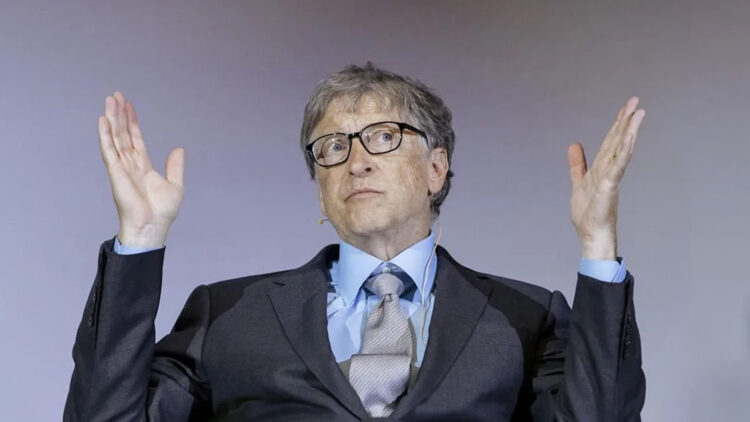Bill Gates has been talking about climate change for a long time, but his message is now looking to calm fear and focus on the efforts. In an article published in GateNotes, the cofounder of Microsoft explains that apocalyptic scenarios can distract us from what really makes people’s life better.
He says that, “While climate change will have serious consequences, especially for people in poorer countries, it will not lead to the demise of humanity.” His reflexion comes just before the COP30, the climate summit from the United Nations that will be celebrate un Brazil.
The “three truths” of Gates
To make it clear, Bill Gates resume his position in “three truths”:
The first, looks to put the subject in context: global warming is real and dangerous, but it doesn’t mean that humanity will disappear. He quotes that the “apocalyptic” speeches, change the direction of resources towards carbon emissions goals in a short period of time, when they could invest it in actions that resonate with people in a warmer worlds.
The second “truth” questions the temperature as the only measurement tool: “temperature is not the best way to measure progress on climate.” For him, focusing only on temperatures and degrees can push policies that forget human well-being: for example, prioritizing quick cuts without looking if they are making worse the lives of those who already have a hard time, ”relegated to a secondary position to emissions reduction, with negative consequences”.
The third, is mainly practical: “health and prosperity are the best defence against climate change.” What does this means? Investing in basic services, more climate resistant food, and ways to help communities to adapt reduces the damage from climate change in a daily and direct manner.
From theory to action: prioritize people
Gates is not denying the science or minimising the challenges (like Donal Trump did at the United Nations General Assembly), he’s asking to adjust the focal point. In his words: “Apocalyptic outlooks are causing much of the climate community to focus too much on short-term emissions targets. It is diverting resources away from the most effective things we should be doing to improve life in a warming world.”
And in the practice, he suggests that COP30 in Brazil would be an opportunity for the U.N. leaders to talk a little less about abstract goals and more about plans the fit daily life, whit fresher households, safer waters, reliable energy, cities prepared for extreme heat waves or rains, and support to the agriculture that feeds millions of people.
He believes that protecting crops, soils and supplying chains will help lower prices and would prevent families from falling into poverty when the weather fails.
Why does the change of “metric” would matter?
Having a policy that only looks at carbon emissions could miss other solutions that could save lifespans today.
If success is also measured by a level of well-being—health, safety, available food, open schools—governments could combine reduction of carbon emissions with a smart adaptation to the situation. The 2100 data (2-3 °C more compared to 1850) is not an excuse to do less, but a call to do better, like support what reduces carbon emissions and at the same time, invest in resilience.
Agriculture is a key exemple because in some countries it could lift a whole economy if its resist better to weather, reduces hunger and economical stress. It could make communities stronger to face global warming.
A more human approach to a real problem
Bill Gates message is to prioritize people.
Microsoft and his founder, have pushed global conversations, and now he proposes that COP30 and the United Nations not to loose sight of those who suffer the most climate change.

